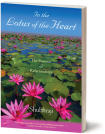Hari Om!
Om Sri Chinmaya Satgurave Namah
According to Advaita Vedanta, bondage of the self is due to spiritual ignorance or avidya. When this avidya is removed by right knowledge (vidya), there is nothing new that appears; one simply realizes the truth of the Self, which appeared to have been covered. In other words, it is a rediscovery of who you are and have always been.
Adi Sankara (780-820 A.D.) the great Advaita Vedanta philosopher has written extensively in his commentaries on the Scriptures and in his prakarana granthas (books of categories), about how this realization of the Self has nothing to do with action or karma, it is based purely on gaining Self-knowledge.
The Self is nitya, shuddh, buddh, mukta – eternal, pure, all knowledge and ever free. It always was and always will be – and everything we see is only an appearance. This eternal Self is in fact our true nature. Mistakenly we have identified ourselves with the limited upadhis or adjuncts – our physical body and thoughts etc., and we are only suffering as the jiva or individual ego.
To remove this suffering, we need to reach a space of relative quietude and inner equilibrium first – technically called antahkarna shuddi or purity of the heart. This is achieved through selfless, dedicated actions – so karma yoga is insisted upon. However, the final liberation comes through direct knowledge; through understanding the correct import of the words of the scripture and the teaching of those words, through a competent compassionate guru.
Ordinarily, in the world, all our efforts are action oriented. In spirituality too, we hear a lot of talk about action, particularly selfless action or karma yoga. Though Vedanta endorses karma or action, it is merely as a tool for inner purification (refer to Bhagavad Gita 3. 4 -16). It prepares the ground for making the mind and heart ready to gain knowledge. It makes all selfless actions, seva or service, instrumental in attaining the discipline of knowledge.
At no time, say the scriptures, can action be the agent for liberation or moksha.
As Sankara says in His ‘Atmabodh’ verse 3:
“avirodhitaya karma na- avidhyam vinivartayet
vidya- avidyam nihantyeva tejas- timirasanghavat”
“Action cannot destroy ignorance, for it is not opposed to ignorance.
Knowledge does (verily) destroy ignorance as light destroys deep darkness.”
Action comes from ignorance. As a result of feeling incomplete, man engages in action to feel complete. The point is that action does give us something – but Vedanta shows us that the result of the action-oriented (selfish) action is finite. What we are seeking is infinitude or everlasting peace and that cannot be a result of actions or karmas, which by their very nature are finite and can only give us a finite and impermanent result, subject to the laws of time and space.
As long as we act from this sense of ego in the realm of spiritual ignorance, even the best of actions, charity etc., according to the Vedas can help us only to obtain heaven or swarga, and in the karmakanda or action portion of the Vedas, it is said that heaven is eternal. However, Advaita Vedanta proves through logic that even heaven is not eternal. It is the experience of everyone, that the fruit of action is finite and so how can anitya karma (non-eternal action) give us eternal heaven? Limited action can give us happiness but that happiness is time bound – it is anitya sukham. We are seeking nitya sukham or eternal happiness. Vedanta stresses that our essential nature is happiness and this is regained through true knowledge about the self.
So if action will not give us the desired result, what will? Without going into too much detail here, it is said that enquiry into Brahman or the Absolute Reality after the pre-requisite four-fold qualifications (sadhana chatushtaya) of the seeker, will pave the way for liberation.
This subjective enquiry into Brahman, has for its fruit, eternal bliss, and does not depend on the performance of any acts – this is clearly established through the various commentaries of Adi Sankara and other advaita masters!
“A deep, wise, and wonderful exploration of the Vedanta path for relationships both with yourself and with others. Shubhraji provides everything you need to create healthy, fulfilling relationships…”
Order Now